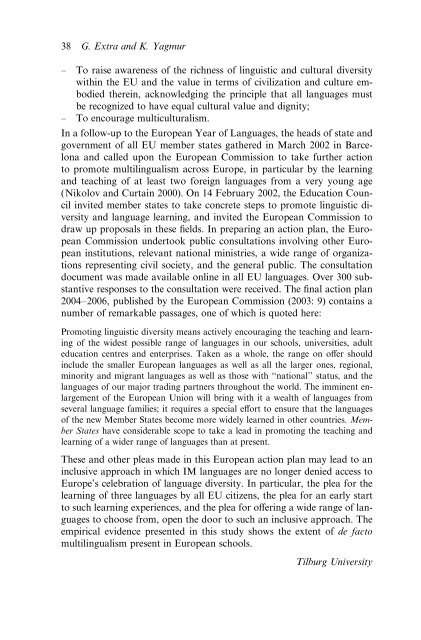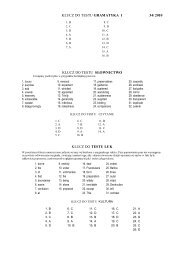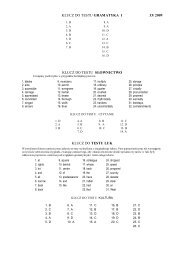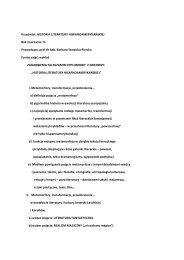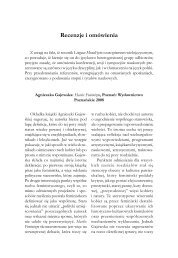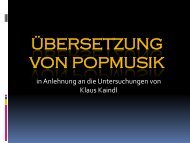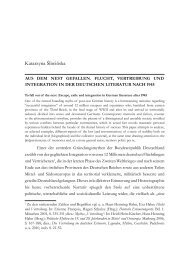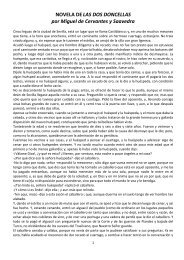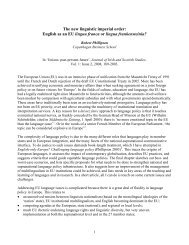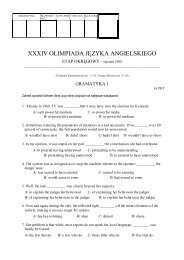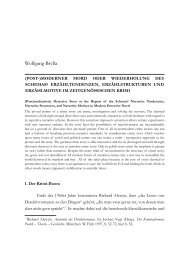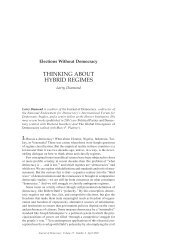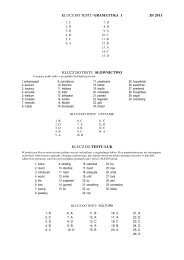R9 EXTRA YAGMUR Emerging multilingualism in urban Europe.pdf
R9 EXTRA YAGMUR Emerging multilingualism in urban Europe.pdf
R9 EXTRA YAGMUR Emerging multilingualism in urban Europe.pdf
You also want an ePaper? Increase the reach of your titles
YUMPU automatically turns print PDFs into web optimized ePapers that Google loves.
38 G. Extra and K. Yagmur– To raise awareness of the richness of l<strong>in</strong>guistic and cultural diversitywith<strong>in</strong> the EU and the value <strong>in</strong> terms of civilization and culture embodiedthere<strong>in</strong>, acknowledg<strong>in</strong>g the pr<strong>in</strong>ciple that all languages mustbe recognized to have equal cultural value and dignity;– To encourage multiculturalism.In a follow-up to the <strong>Europe</strong>an Year of Languages, the heads of state andgovernment of all EU member states gathered <strong>in</strong> March 2002 <strong>in</strong> Barcelonaand called upon the <strong>Europe</strong>an Commission to take further actionto promote <strong>multil<strong>in</strong>gualism</strong> across <strong>Europe</strong>, <strong>in</strong> particular by the learn<strong>in</strong>gand teach<strong>in</strong>g of at least two foreign languages from a very young age(Nikolov and Curta<strong>in</strong> 2000). On 14 February 2002, the Education Council<strong>in</strong>vited member states to take concrete steps to promote l<strong>in</strong>guistic diversityand language learn<strong>in</strong>g, and <strong>in</strong>vited the <strong>Europe</strong>an Commission todraw up proposals <strong>in</strong> these fields. In prepar<strong>in</strong>g an action plan, the <strong>Europe</strong>anCommission undertook public consultations <strong>in</strong>volv<strong>in</strong>g other <strong>Europe</strong>an<strong>in</strong>stitutions, relevant national m<strong>in</strong>istries, a wide range of organizationsrepresent<strong>in</strong>g civil society, and the general public. The consultationdocument was made available onl<strong>in</strong>e <strong>in</strong> all EU languages. Over 300 substantiveresponses to the consultation were received. The f<strong>in</strong>al action plan2004–2006, published by the <strong>Europe</strong>an Commission (2003: 9) conta<strong>in</strong>s anumber of remarkable passages, one of which is quoted here:Promot<strong>in</strong>g l<strong>in</strong>guistic diversity means actively encourag<strong>in</strong>g the teach<strong>in</strong>g and learn<strong>in</strong>gof the widest possible range of languages <strong>in</strong> our schools, universities, adulteducation centres and enterprises. Taken as a whole, the range on o¤er should<strong>in</strong>clude the smaller <strong>Europe</strong>an languages as well as all the larger ones, regional,m<strong>in</strong>ority and migrant languages as well as those with ‘‘national’’ status, and thelanguages of our major trad<strong>in</strong>g partners throughout the world. The imm<strong>in</strong>ent enlargementof the <strong>Europe</strong>an Union will br<strong>in</strong>g with it a wealth of languages fromseveral language families; it requires a special e¤ort to ensure that the languagesof the new Member States become more widely learned <strong>in</strong> other countries. MemberStates have considerable scope to take a lead <strong>in</strong> promot<strong>in</strong>g the teach<strong>in</strong>g andlearn<strong>in</strong>g of a wider range of languages than at present.These and other pleas made <strong>in</strong> this <strong>Europe</strong>an action plan may lead to an<strong>in</strong>clusive approach <strong>in</strong> which IM languages are no longer denied access to<strong>Europe</strong>’s celebration of language diversity. In particular, the plea for thelearn<strong>in</strong>g of three languages by all EU citizens, the plea for an early startto such learn<strong>in</strong>g experiences, and the plea for o¤er<strong>in</strong>g a wide range of languagesto choose from, open the door to such an <strong>in</strong>clusive approach. Theempirical evidence presented <strong>in</strong> this study shows the extent of de facto<strong>multil<strong>in</strong>gualism</strong> present <strong>in</strong> <strong>Europe</strong>an schools.Tilburg University


